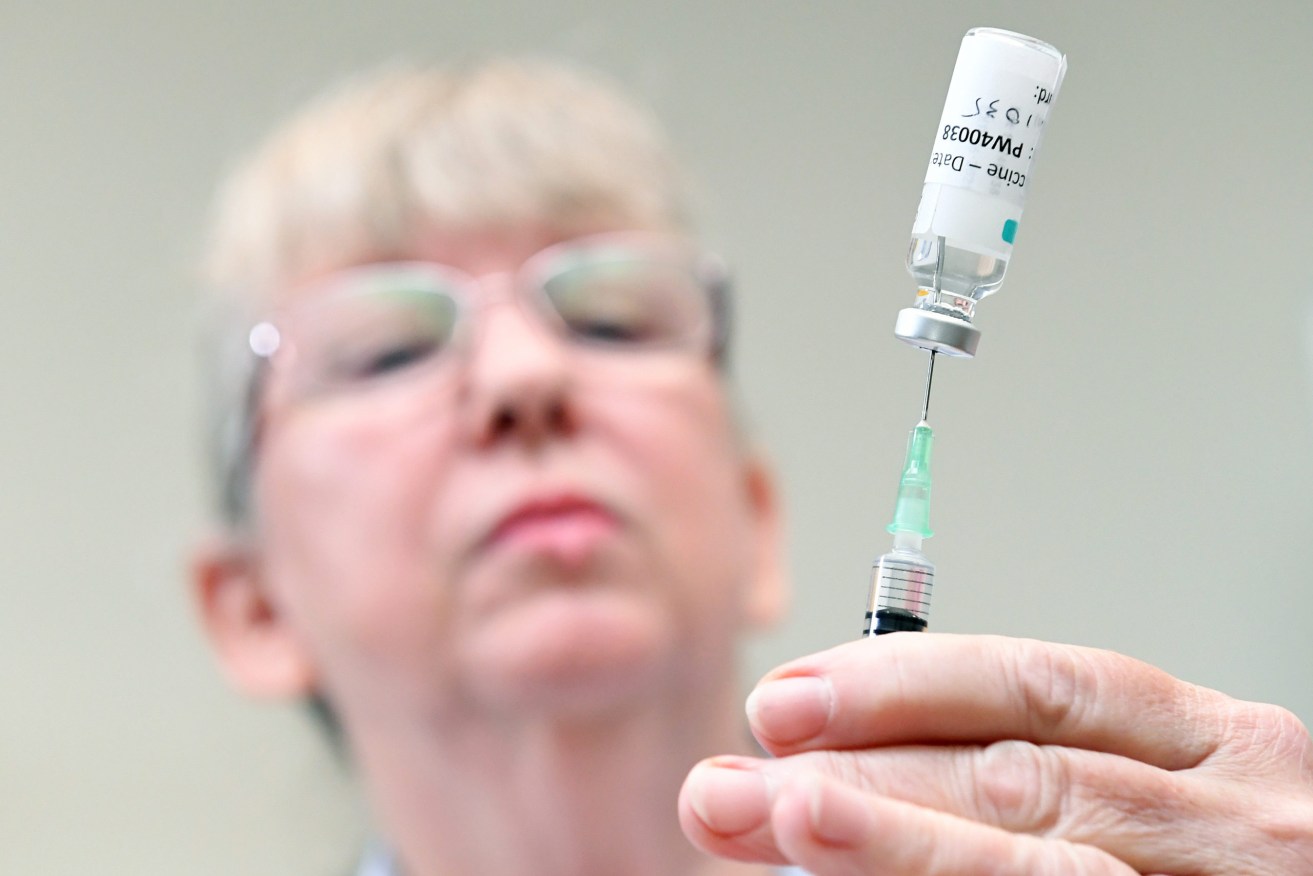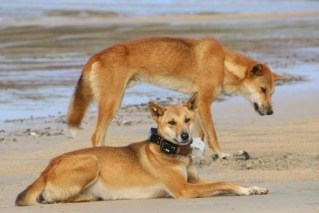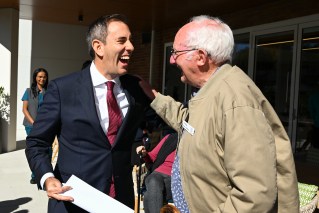Omicron warning: We know it’s infectious, we still don’t know how sick it will make us
Australia has been warned against gambling on Omicron-induced illness not being as severe as previous Covid-19 variants amid rising infection tallies.

NSW and Victoria recorded 3803 new infections between the country’s two most populous states on Monday.
And Queensland recorded 59 new cases, with Chief Health Officer John Gerrard saying infections seemed to be doubling every 48 hours.
Case tallies are expected to rise further as people take advantage of open borders across much of the country over Christmas.
University of New South Wales professor of epidemiology John Kaldor cautioned a lot remained unknown about the Omicron strain.
“The first thing to figure out, as with any new variant, is first of all how infectious (is it)? Then, secondly, how much disease is it causing and, particularly, how well are the vaccines working?” he told ABC radio.
“We’ve got the answer to the first one of those three, but we haven’t got the answer to the second and the third as yet.”
Premier Annastacia Palaszczuk congratulated Queenslanders for complying with reintroduced rules on wearing masks, urging that they should be worn whenever people are indoors.
“This is just an added precaution until we get to 90 per cent double vaccinated,” she said.
Meanwhile, a survey commissioned by the Tourism & Transport Forum has found four out of five Australians have now either cancelled or are undecided over their summer holiday travel plans, while one in two have no confidence in travelling interstate.
Chief executive Margy Osmond said the national survey of 1500 people revealed the concerns of three in ten Australians had increased following the emergence of Omicron with the same number either cancelling or postponing their travel plans.
Seven out of 10 are waiting for more information before making a decision.
REX Airlines deputy chairman John Sharp said people had been cancelling Christmas travel plans.
“So they’re either nervous about catching coronavirus or alternatively worried that they might be in a close contact to somebody who has got coronavirus and therefore they will be put into quarantine,” he told the Nine Network on Monday.
“When you travel, you are obviously going to be in very close contact with people and so the risks people are assessing are quite high. So we’re seeing cancellations now happening.”
Prof Kaldor warned waiting to see whether hospitalisation rates worsened before beefing up public health measures was was risky.
“We can’t be waiting to watch that number (and) react in some way to make our decisions at this stage,” he said.
He expected new infections to climb into the tens of thousands in the absence of additional infection controls, particularly in NSW.
“If the severity is of a scale that’s even half that of Delta, then there’ll be a really strong impact on the hospitals and their ability just to provide care to people who need it,” Kaldor said.
There were 2501 new cases in NSW reported on Monday, with 261 people in hospital – 33 of them in intensive care.
Victoria recorded 1302 additional infections. The state has 406 people in hospital including 81 in intensive care.
But Prime Minister Scott Morrison urged calm, touting Australia’s high 16-plus full vaccination rate which surpasses 90 per cent.
“As more and more people go and get their boosters we can face Omicron and we can stare it down with sensible, common sense measures that enable Australia to keep forging ahead,” he told an event in NSW.
Deputy Prime Minister Barnaby Joyce, who contracted Omicron during an overseas trip to the United Kingdom and United States, said people needed to get on with their lives.
“It was really mild, a couple of days and the rest of the time you had the virus, you didn’t feel sick. And that is one of the frustrations,” he told the Seven Network.
Mr Joyce, who is double vaccinated, has been cleared to leave hotel quarantine in Washington and return to Australia.
Epidemiologist Adrian Esterman called on the Australian Technical Advisory Group on Immunisation to recommend boosters three months after a second dose.
He feared leaving the gap at five months will result in “thousands of people infected for no reason”.
The University of South Australia professor anticipated booster shots becoming an annual event, if not more frequent than that.
South Australia on Sunday reported 80 new Covid-19 cases, Queensland 42 and the ACT 18.
There were nine new infections in the Northern Territory as authorities there anticipated extending a lockdown in the town of Tennant Creek.
Tasmania reported three new cases as it prepared to mandate masks indoors.
Australia’s full vaccination rate for people aged 16 and older is sitting at 90.42 per cent. The first dose rate is nearing 94 per cent.
The number of boosters delivered into arms exceeds 1.3 million, with more than 640,000 doled out in the last week.












